Project Overview
Tsuda University was selected to be a part of the FY2018 Private University Research Branding Project (Type B: Global Development Category) of the Ministry of Education, Culture, Sports, Science and Technology. Selected universities are expected to create initiatives that contribute to the domestic and international development of the economy, society, and science and technology by establishing advanced academic research sites.
Our theme for this project is to “create a hub for inclusive leadership research that aims to foster women who make a difference.” This project is based on Tsuda Vision 2030, our strategy for the future, which was set out in 2017. The vision’s overarching ideas are expressed in the motto—“Empowering women to make a difference”—and in the mission statement—“Discover your true potential, share your strength with others, have the courage to overcome uncertainty, let your creativity shine, even in a time of adversity.”
Since Tsuda was founded in 1900, our mission has been to produce women who make a difference and contribute to society. Building on this history, we aim to share with the world the Tsuda brand, which stands for women leaders who go out into the world to open new paths.
The Diversity Center for Inclusive Leadership
The Diversity Center for Inclusive Leadership (DCfIL) works to foster women who have high-level expertise and the inclusive leadership skills needed to make our society a better place. To that end, the DCfIL studies and promotes inclusive leadership and diversity and seeks to encourage global development beyond the boundaries especially of regions, ethnicity, gender, and religion. Our goal is to realize an inclusive environment in which women can be empowered and active leaders.
While learning from the ingenious ideas of our predecessors, the DCfIL seeks to find solutions to current social problems, using data science techniques, and to establish models of inclusive leadership that will be able to impact all people, including social minorities, in the future. The DCfIL will provide a place for demonstrative research concerning diversity and inclusion, which will allow us to make concrete recommendations on how leadership should be used to realize a society in which diverse people not only live together but truly coexist through exchanging ideas, influencing the people abound them, and making advances together.
With these goals in mind, the DCfIL started its operations by first setting up the following four projects:
- Leadership Research
- Data-Driven Policy Making and Practical Education Program Development
- Social Inclusion Research
- Archive-Based Research on Women Role Models
It has since added five related projects, further enhancing its initiatives.
Message from the Director of the DCfIL
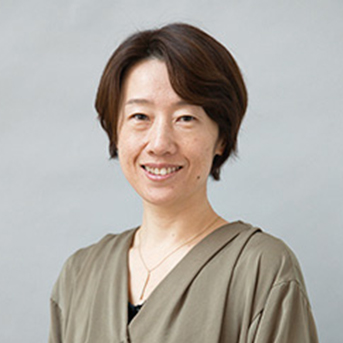
Mie Morikawa
The DCfIL was founded in 2019 after Tsuda University was selected for the Private University Research Branding Project.
With the goal of sustainably developing women who make a difference, the project aims to cultivate human resources who can hold their own in an aging society where disabilities are becoming more universal and data utilization is increasingly globalized. To this end, the DCfIL will develop programs for nurturing female leaders and provide models of women’s social advancement and contributions to a society where people may live up to a hundred years of age. This promotes Vision I (“Educating women to make a difference; learning that continues for a lifetime”) in Tsuda Vision 2030 from a research perspective. As the core of this activity, the DCfIL will offer inclusive leadership models for realizing an inclusive society by supporting the various project-related research activities and providing a place for demonstrative research concerning diversity and inclusion.
The DCfIl also aims to encourage women, who have to contend with many difficulties along the way toward the future, and to provide the know-how needed to solve challenges practically—not only for individuals but also for society.
I would appreciate your understanding and support for our activities.
What the DCfIL Logo Means
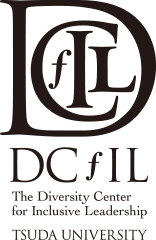
Inclusiveness is the DCfIL’s core value. Therefore, the letter “I,” the initial letter of “Inclusive,” is located at the center of the logo to show that the fundamental focus at the DCfIL is research on inclusive leadership that aims to ensure the fair treatment of people, regardless of gender, disability, age, etc. The letter “I” is surrounded by other letters, representing the inclusivity aimed for by the DCfIL. This combination of letters expresses how each individual keeps learning through various projects and research activities to become a centered leader who plays an active role in society.
What is Inclusive Leadership?
Leadership provided in a way that includes and respects everyone.
The DCfIL’s Mission
The DCfIL's mission is promoting research that helps develop the methodology and social environment for underrepresented people (especially women, the disabled, and the elderly) that will enable them to get the inclusive leadership which will be required in society from now on.
About DCfIL Projects
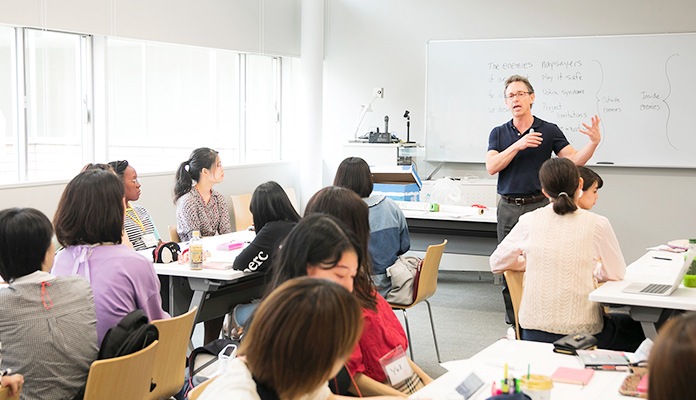
01
Leadership Research
The purpose of this project is twofold: (1) to equip women with leadership and communicative competence so that they can participate in negotiating and mediating among different parties and camps in international settings towards mutually beneficial goals; and (2) to strategize an English-speaking curriculum fostering such expertise. Umeko Tsuda, the founder of Tsuda University, outlined the initial road for women to become influential in international settings and bring about major changes in our society. This project endeavors to establish prominent English-speaking leadership programs that will foster young women who will be influential in creating a better society.

02
Data-Driven Policy Making and
Practical Education Program Development
This project aims to nurture “data-driven female leaders” who are capable of proposing policies to deal with social challenges using both ICT (Information and Communication Technology) and social science knowledge in a data driven society. There are three research contents and challenges; [A] Build a database for women’s participation; [B] Build a data-driven type challenge resolution model based on industry-government-academic links; [C] Develop a practical educational program.
- A database will be built, composed of data which will form the grounds for policies related to social challenges which women face directly. Its target will be diagrams to be published in government white papers and reports by deliberative councils and back data supporting these diagrams.
- A system linking regional governments, private companies and universities will be established and used to propose prescriptions for social problems based on the collection and analysis of data.
- Based on the results of [A] and [B], a practical educational program intended to nurture “data-driven female leaders” will be developed.
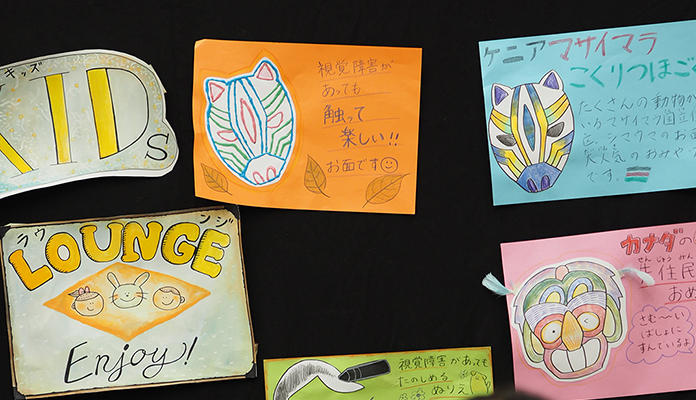
03
Social Inclusion Research
The purpose of this project is to establish a learning model for inclusive leadership in the field of welfare for people with disabilities. Tsuda University has many alumni who contribute to social inclusion, such as the representative of DPI Japan. Having inherited this spirit, Tsuda develops students who include all of the diverse people in society. The most important missions of this project are (1) the history of inclusion in Japan; (2) research on the persons who have contributed to it; and (3) analysis of what is required to provide reasonable accommodation. Based on these research themes, the results of survey sampling and interviews will be presented at events. It is expected that a fundamental learning model for inclusive leadership will be established and put in practice.
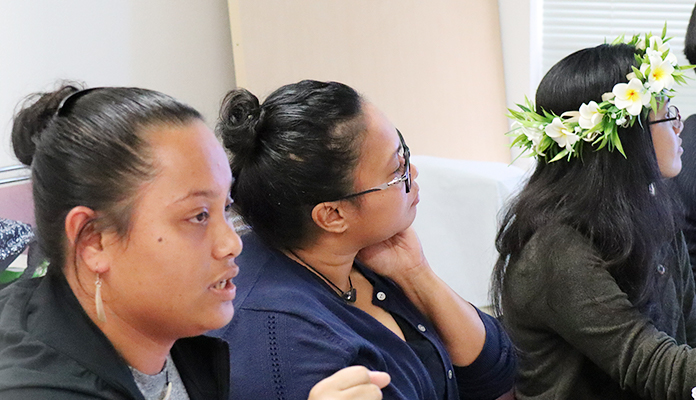
04
Archive-Based Research on Women Role Models
Since its foundation in 1900, Tsuda University has sent into society numerous graduates who have pioneered in a wide variety of areas. The aim of this project is to document oral histories from those alumnae who have played a leading role as women pioneers in society. Their substantial achievements will be organized as a database which will eventually be made accessible to the public in Tsuda Archive. Tsuda Archive will offer role models of our motto, “women who make a difference,” in order to educate and support women leaders of the next generation.
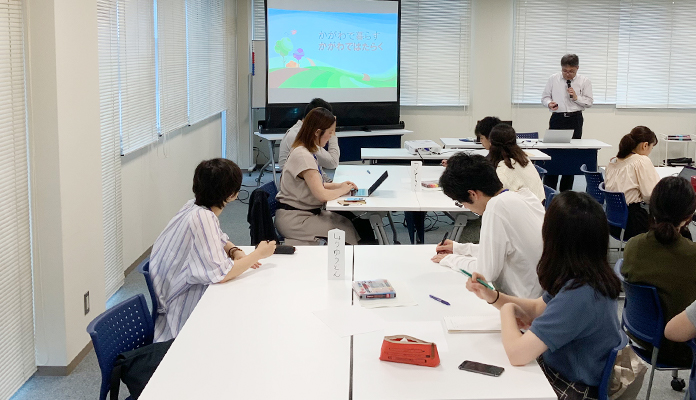
05
Development of an Integrated Education and
Research Program of Computational Social Science from a Global Perspective
In order to promote diversity in society, it is necessary that women who are highly interested in social issues cultivate basic skills in the STEM (Science, Technology, Engineering, Mathematics) fields so that they can exert inclusive leadership based on concrete evidence. In particular, the percentage of women engaged in AI-related fields in the world was only 22% in 2018 and this is currently one of the most important fields to promote diversity.
With this background in mind, we aim to develop an effective program to foster female human resources who can play a role in promoting data analysis projects while maintaining appropriate communication with stakeholders in social issues.

06
Enhancing Student Learning through Analyzing Social and Political Diversity
among Tokyo Metropolitan Assembly Members
Tsuda University has focused on the education of women as minorities and placed great importance on diversity in our society. To build a more diverse society, we try to examine the effects of diverse representation on the resulting diversity in policy outcomes through conducting surveys of Tokyo Metropolitan Assembly members. Our goals are 1) to establish a database of Tokyo Metropolitan Assembly members designed for academic and electoral uses; 2) to make our students skilled survey researchers and data scientists; and 3) to value diversity in our democratic society.
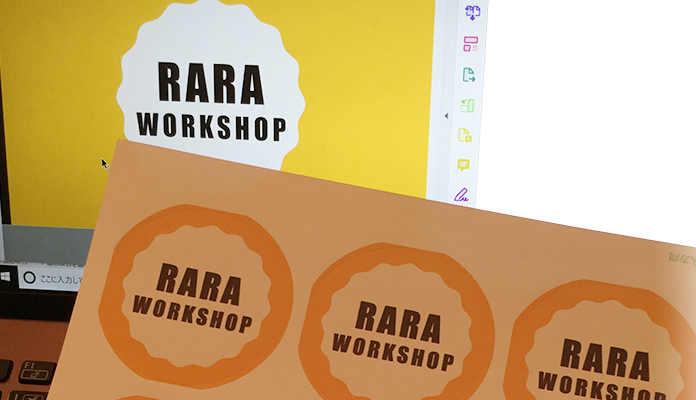
07
Reasonable Accommodation of Reading Accessibility:
Empirical Research of Literacy in Comparison to Braille and Sign Language
This project aims to describe the characteristics of understanding braille and sign language. Usually, reasonable accommodation for persons with visual disabilities is the transformation into text data by braille or speech form to make them accessible. For persons with hearing disabilities, captioning and notetaking, translating into sign languages are provided. Although such methods are standard and essential, do they really succeed in conveying the contents with similar qualities compared with the original form?
This project will focus on three points for assessing the conveying of information and understanding characteristics: 1. types of disabilities; 2. Forms: braille, speech, text formats and sign languages; and 3. categories of contents such as BICS (Basic Interpersonal Communicative Skills) and CALP (Cognitive Academic Language Proficiency).

08
Inclusive AI: A Preliminary Study of Social Inclusion
using Artificial Intelligence
The purpose of this study is to investigate the possibilities of application of Artificial Intelligence to social inclusion. Using techniques of Artificial Intelligence could enable social minorities, such as people with disabilities and elderly people, to develop their independence and leadership. For example, people with developmental and learning disabilities would be able to summarize and express their thoughts to other people, with the help of Artificial Intelligence techniques. We will establish an Inclusive AI study group and hold open lectures on this theme. We will also set up a place for academic discussion of social inclusion and Artificial Intelligence through the network created by open lectures.
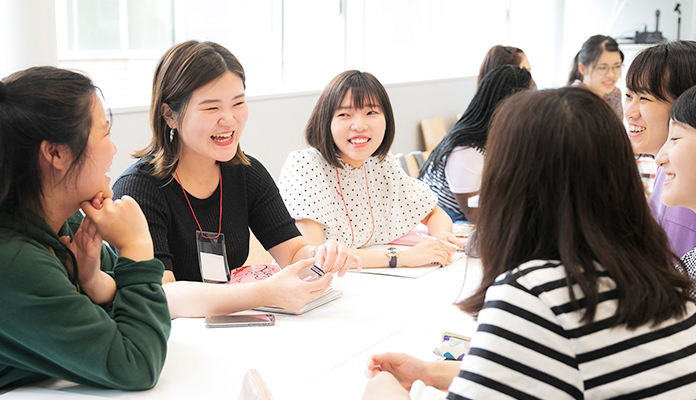
09
Inter-disciplinary Project for Early Career Researchers
The purpose of this project is to support young and early career researchers at Tsuda University. In this project, some early career researchers (who meet certain requirements) will be instructed and given financial support by their supervisors. Ideas that “join four projects” will be suggested by the young researchers, who will collaborate with each other. The project comprises the following process: idea sharing, brushing up ideas through supervisors’ instructions, making research plans, research cost allocation, and announcing progress on the website. It is expected that this research will be improved by the comments from the various people who visit the website and posting research progress on the website will advertise their own research.







